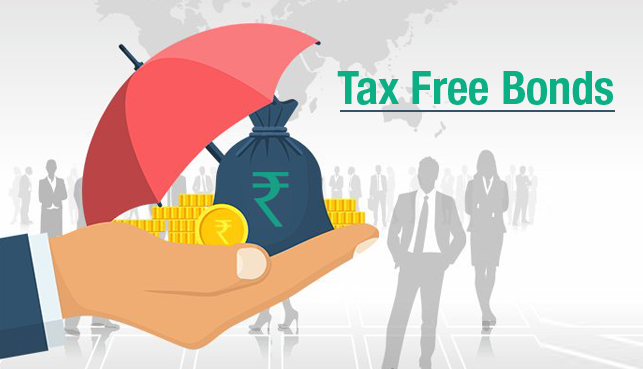People are now becoming aware of the importance of saving and investing due to growing financial awareness. Numerous options are available to invest and earn a handsome return depending upon the investment objectives, age, risk appetite, etc.
Some people are risk-takers and choose investment options like Mutual Funds, stock markets, whereas some people are risk-averse and prefer to invest in some safe investment option and also the tax-efficient.
If you are one of them who are looking for some attractive, safe investment options with fixed interest income and zero tax to the government, then here we are going to suggest the best option that is “Tax-Free Bonds.”
Meaning of Tax-Free Bonds
Tax-free bonds are the bonds issued by the government-backed enterprises for raising funds. The money collected from these bonds is invested in infrastructure and housing projects around the country.
The best things about Tax-free bonds are the interest earned on your bond every year is entirely tax-free as per section 10 of the Income Tax Act, 1961.

Popular Government entities offering Tax-free bonds:
Some of the popular entities that issued such bonds are

- Housing and Urban Development Corporation (HUDCO),
- National Highway Authority of India (NHAI),
- Power Finance Corporation (PFC),
- Indian Railway Finance Corporation (IRFC),
- Rural Electrification Corporation (REC),
- Indian Renewable Energy Development Agency (IREDA) etc.
Who should invest in Tax-free bonds?
- An excellent choice for the risk-averse investor such as senior citizens
- Those who are looking for fixed recurring income for a more extended period.
- People come under the higher tax bracket. If you fall in the 30 percent or above tax bracket, you stand to gain more. Usually, such bonds are an ideal choice for the individual, HUF, trusts, etc. and co-operative banks, and qualified institutional investors.
Features of Tax-Free Bonds:
Return: The central government determines the rate of interest of Tax-free bonds. They offer a fixed rate of interest ranges between 5.50% – 6.50% p.a. The interest earned is credited annually (for example, 31st March every year), and the all amount is exempt from the Tax.
Tenure: Tax-free bonds come for long term investment plans. Therefore, they have lock-in periods of 10, 15, or 20 years. Bondholders cannot withdraw the amount before maturity; therefore, makes sure to choose the plans depending upon your needs and if you are sure that you don’t need fund for an extended period.
Liquidity: The Tax-free bonds are listed on the NSE and BSE. Hence, you can sell them in the ongoing market. But, like the other debt funds, these bonds cannot liquidate quickly.
Tax Exemptions: The income generated from Tax-free bonds is fully exempt from the Tax in the form of interest. Also, the Tax deducted at source (TDS) is not applicable to interest income. However, every bondholder has to declare the interest in the return of income.
Minimum risk: As the entities are backed-up by the government, there is less risk involved for the default of interest.
How to Invest in Tax-free bonds?
The subscription period to invest opens for the specific time only. Once, the subscription period over, you can still buy/sell the bonds through stock exchanges by using your Demat account, Therefore, for making the investment easy, the government allows the investors to invest in the Tax-free bonds through two modes:
1. Demat Account (Online mode): While investing through Demat, your PAN is already submitted when you have opened your Demat account. Hence, no need to provide any document again.
2. Physical Form (Offline form): In an offline mode of investing, you have to submit your PAN details.
How to redeem the tax-free bonds?
Withdrawing of money before the Pre-determined tenure is not permitted. But, you can trade the bonds on the stock exchange, just like the trading of shares. However, the redemption process is as simple as the investing procedure.
Taxability on sale: As the bonds are listed on stock exchanges, then if there is any capital gain on transferring (profit on sales) them on exchanges that will be taxed. Section 112 of the income tax act. prescribed the taxability on the sale of bonds.
Short term capital gain: If the holding period is less than 12 months, capital gains on the sale of tax-free bonds on stock exchanges are taxed as per the tax slab rate of the investor.
Long term capital gain: If bonds are held for more than 12 months, the gains are taxed at 10.4 percent (including surcharge and without indexation).